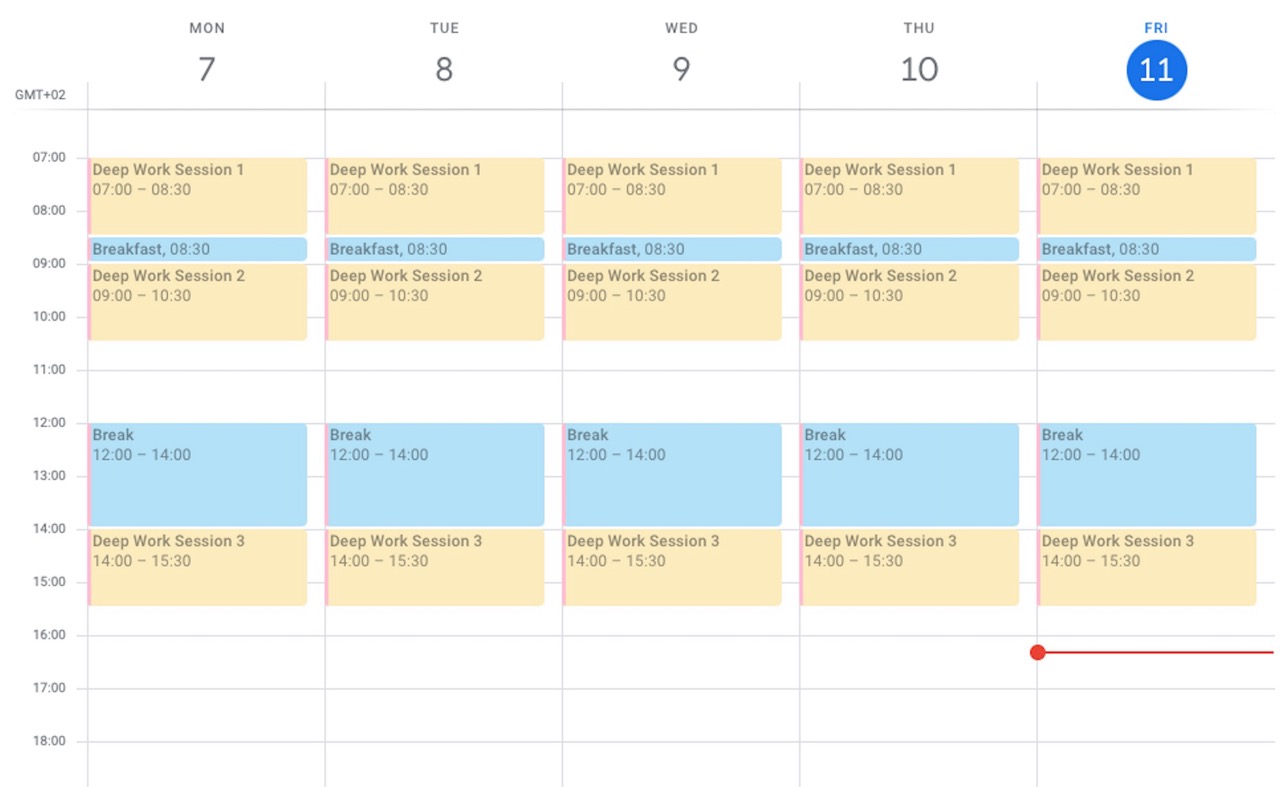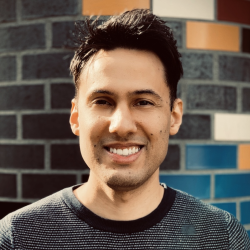Structuring my day for deep work
This week I decided to try out a new daily routine structured for deep work. The idea is to try to focus more on cognitively demanding tasks and avoid multitasking. These things are discussed extensively in Cal Newport’s excellent book Deep Work and he says the following:
“The key to developing a deep work habit is to move beyond good intentions and add routines and rituals to your working life designed to minimize the amount of your limited willpower necessary to transition into and maintain a state of unbroken concentration.”
I decided to adopt 3 sessions of deep work a day, more or less at the same time, each lasting 90 minutes as recommended in the book. As a software engineer, I have learned that shorter sessions (i.e. Pomodoro technique) don’t work for me since I spend too much energy to focus, and at each break, I have to repeat all the effort - so I prefer a longer period of 90 minutes.

Morning
The first session I do very early in the morning before breakfast. To gain momentum for the rest of the day, I tackle the most difficult task right away. Important to say that I choose this first task the day before so I don't have to think much about what I should do. Then I have breakfast with coffee. I feel energized by the 90 minutes of productive work I've just completed. Then I move on to the second deep work session, now stimulated by the effects of caffeine.
This session ends before 11:00 a.m. or so and, likely, I have already finished the most difficult thing I planned for the day and it brings me that feeling that no matter what happens from now on, I have fulfilled a good part of my obligations and the day has been worthwhile. After the second session, I complete the morning period with things that do not require a lot of thinking such as more mechanical tasks, messages, less important emails, and other small tasks.
Afternoon
After 12pm I stop working for 2 hours. During this time I will do some exercise (running, walking, or Yoga to solve my back pain), take a shower, have lunch, take a nap, or even play a game. I do this without guilt and as a reward for what I did in the morning.
From 2pm to 3:30pm I start the third and last session of deep work. I am already a little more tired but there is some magic that exercising brings that I can’t really explain. It is a session where I feel slower but with more creativity and ideas. It’s in this period that I will tackle the tasks with lower priority than the ones I chose to do in the morning.
Wrap up for the day
I end the day with another round of emails, messages, and smaller tasks. I clear my email inbox, desktop, and downloads folder, and plan the next big 3 things to be done the next day.
During this experiment, I worked an average of 7.5 hours a day, of which 4.5 hours were of deeper focus. More hours than this may work sometimes, but it is not sustainable in the long run (I have had burnout, and I don’t recommend it). This was only the first week of testing this structure and I can say it was positive. A sign of this came from my wife who said: “I haven’t seen you working any evenings this week, what happened?
I know that a routine structured in this way does not work for all people depending on their profession. It probably wouldn’t work for me when I worked in companies with larger teams. But in my current reality, it is showing benefits.
I will continue to bring more updates about it in the newsletter.
Get more from your notes
I send occasional email updates with tutorials, links to articles, and content that I recently enjoyed. I'd love for you to join.

